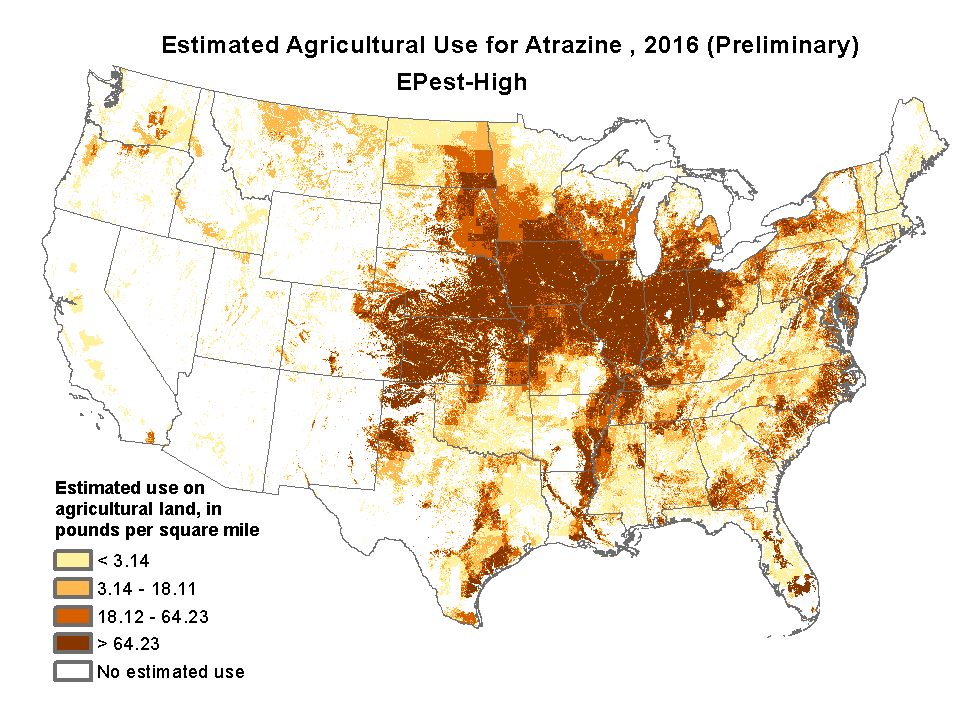06
May
Trump EPA Waives Requirement to Monitor Waterways for Hazardous Weedkiller

(Beyond Pesticides, May 6, 2020) The Trump Administration announced late last month that it is waiving a requirement that multinational chemical company Syngenta-Chemchina continue to monitor Midwest waterways for the presence of the weedkiller atrazine throughout 2020. While rationalized by the Administration as “due to the unanticipated impact of Covid-19,” the move will instead put residents health at increased risk. Atrazine is one of 78 pesticides that has been linked to the development of respiratory ailments like wheeze.
“The public will now have no idea whether dangerous levels of atrazine are reaching rivers and streams throughout the Midwest. That’s absurd and reckless,” said Nathan Donley, PhD a senior scientist with the Center for Biological Diversity. “Syngenta should suspend the sale and use of this extremely toxic pesticide until it can safely ensure it’s not polluting Corn Belt waterways.”
Syngenta, which merged with state-owned China Nation Chemical Corporation (Chemchina) in 2016, has been bound by EPA to monitor Midwestern waterways since a 2004 review by the agency. This is because atrazine is a potent groundwater contaminant. Just two years ago, an analysis by the Environmental Working Group found atrazine to be exceeding legal limits in drinking water for many Midwestern states.
Even though monitoring programs are critically important tools, they show only a snapshot in time, as prior reports found that atrazine can spike at extremely high levels that go undetected by regular tests. Rapid influx of atrazine weedkiller into drinking water systems during springtime found birth defects linked time of conception. As a result of its endocrine disrupting properties, the chemical has also been linked to breast cancer.
Atrazine causes significant impacts to the health of aquatic ecosystems, reducing productivity of phytoplankton and causing trophic level cascades. It has been known to harm frogs, and increase susceptibility to chytrid fungi that are implicated in global amphibian declines. Seminal research on atrazine’s ability to cause male frogs to develop female body parts was attacked by Syngenta as part of a long-running smear campaign against independent science.
In 2016, EPA found high risks to ecological health from atrazine exposure. However, under the Trump administration, the agency proposed to increase allowable levels of atrazine in US waterways.
A Syngenta-ChemChina request for a complete elimination of the monitoring program last year was denied due to ongoing concerns over ecological health. That did not stop the company from trying again for a temporary waiver during the coronavirus public health crisis. By granting this temporary waiver, environmental groups argue that the agency is not reducing a regulatory burden, but instead exacerbating an already existing public health crisis at the worst time possible.
“Now is the time to protect people and the environment, not multinational chemical companies,” said Jay Feldman, executive director of Beyond Pesticides.
Send a message to EPA that it’s time to follow Europe’s role in effectively banning atrazine. Sign the petition to ban this endocrine disrupting pesticide from continuing to harm children and wildlife. Research finds that banning atrazine will provide an economic benefit to farmers –the exact type of economic stimulus needed in this time of crisis. With knowledge of organic practices, which economically benefit farming communities, becoming more widespread, the time is now to transition to a safer, healthier food system for all.
All unattributed positions and opinions in this piece are those of Beyond Pesticides.
Source: Center for Biological Diversity










